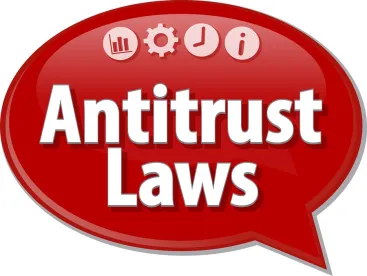In a recent speech, the head of the Antitrust Division of the U.S. Department of Justice (DOJ) once again warned companies about the antitrust risks of certain agreements among employers not to hire each other’s employees. The Federal Trade Commission and DOJ Antitrust Division have challenged these agreements for years. To avoid the new criminal risks that can come with some of these so-called “no-poach” agreements, companies should review any agreements with others regarding hiring practices and ensure their antitrust training is properly designed and targeted.
Previous “No-Poach” Challenges
The cases became so numerous that in 2016, the FTC and DOJ summarized them and jointly issued antitrust guidance to human resource professionals. One of the key points from that guidance was that DOJ would begin to prosecute criminally the most egregious cases. (We covered those cases and the agency guidance a few times, including in our Top 5 Antitrust Issues Facing Companies series last year.)
The policy did not change with the new administration. In September 2017, two new DOJ officials reiterated the 2016 warning about potential criminal liability and one said he was “surprised” by the number of open investigations into such matters. Earlier this month, Makan Delrahim, recently confirmed as the assistant attorney general in charge of the DOJ Antitrust Division, also said he was “shocked about how many of these there are” and told his audience to expect to see announcements of criminal actions in the next “couple of months.”
Not all agreements with other companies about employees and wages automatically violate the antitrust laws. Narrow restrictions that are a legitimate part of some other joint effort that will help competition – like a joint venture, merger or benchmarking – can be fine. Also, the enforcers have recognized as legitimate some no-recruitment clauses in agreements with consultants and recruiters and similar provisions in employment and severance agreements.
How Companies Can Reduce Antitrust Risks
So while we wait to learn more from those announcements of new DOJ actions, what can companies do to reduce their antitrust risks?
-
Review the standard antitrust training materials to ensure that they cover these risks. Too often, those materials focus exclusively on agreements about prices and customers and skip agreements about wages and employees.
-
Provide antitrust training to the human resources professionals and anyone else at the company involved in employee recruitment, retention, and compensation. Too often, that training will focus exclusively on the company’s sales personnel and any employees who regularly deal with competitors through trade associations.
-
Search for any agreements – formal or informal – with other employers about the recruitment or compensation of employees. When found, those agreements must be reviewed for their potential effect on any employment markets. If it is not already, the rationale for those agreements reasonably related to some other joint effort should be noted. If the agreements are simply naked “no-poach” or “wage-fixing” agreements, then next steps could include consideration of DOJ’s criminal leniency program.
These simple steps could save the company – and its executives – from huge penalties in the future.


 />i
/>i

